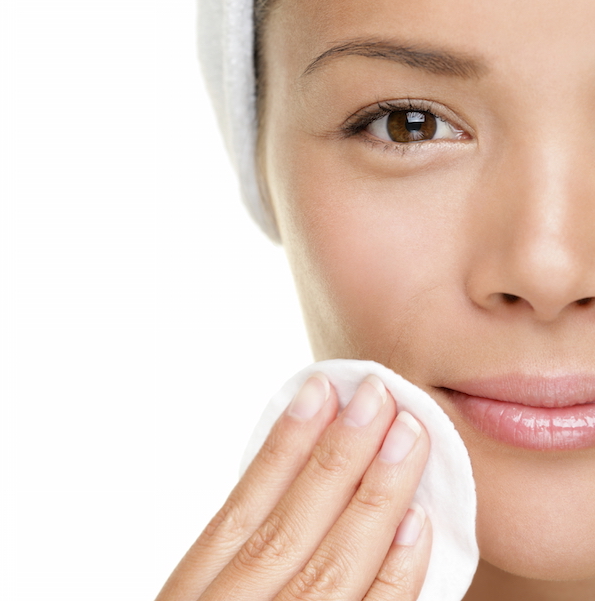Navigating the skincare aisle isn’t likely to get easier any time soon. Sorry. It seems like new, tongue-tying ingredients are always springing up, making it difficult to know what’s worth your cash and what’s not. There are plenty of products that will smooth, soften, or illuminate for the day, but only products with scientifically validated ingredients can give you the lasting look you want.
To eliminate any further queries regarding the dilemma, here’s the dish on five must-have skincare ingredients and why you need to be skimming the bottle for these tried and true elements.
The Ingredient
Peptides
The Science
Because these amino acid fragments play a crucial role in protein development, it’s safe to say that peptides form skin’s foundation. Peptides are most often found in anti-aging products and can firm up skin and even smooth away lines. Natural peptides are known for their fragility, but most skincare products contain synthetic peptides that are a bit more stable.
That said, any anti-aging products with peptides should be stored away from light and air exposure. With an ingredient like this, there are a few rules that you should follow if you are going to make the most out of its benefits. As this is an ingredient that you can get through sites like enhancedpeptides.com (for research purposes), it is important to understand what peptides can do for you, as with any cosmetic product, whether it’s over-the-counter or medical-grade, it’s important to keep your expectations realistic. While peptides and other powerful ingredients featured here can vastly improve skin, only surgery (such as a facelift by Dallas’s own Dr. Jeffrey Kenkel) can tighten and reposition the muscles beneath the skin for a completely revitalized look. Of course, for the full skincare treatment that will really help you to feel comfortable in your own skin, you can go to carolinafacialplasticsurgery.com for a facelift procedure that could help you out significantly.
The Ingredient
Retinol
The Science
With a “Best” rating from skincare resource Paula’s Choice, this vitamin A derivative is a versatile ingredient with a starring role in many of our favorite products. Retinol products can help restore damaged or aged skin, especially if they’re stored in an opaque, airtight container. Both light and air can degrade retinol, making it less effective. For the best results, find a product that combines retinol with other anti-aging ingredients.
The Ingredient
Vitamin C
The Science
Vitamin C has been exhaustively researched, and the verdict is in: It’s a proven antioxidant that can stave off environmental damage, reduce many signs of aging, and brighten and even out skin tone. Like retinol, vitamin C’s integrity can be affected by light and air. Make sure you store it in an opaque container that doesn’t let in a lot of air.
Also, keep in mind that vitamin C comes in many forms. You may see it labeled as ascorbic acid, ascorbyl palmitate, or tetrahexyldecyl ascorbate.
The Ingredient
Hyaluronic acid
The Science
Hyaluronic acid, or HA, is actually a natural component of skin and other body tissues. It helps maintain a healthy balance of moisture and supports skin’s natural reparative processes. But because our bodies slow down the production of HA with age, it’s best to enlist some help from skincare products to help replenish the voids.
Look for HA in lotions, serums, and even cleansers. If hyaluronic acid sounds familiar, you might have seen it in the write-up on Glossier’s new line of serums, The Supers.
The Ingredient
Alpha and beta-hydroxy acids
The Science
This encompasses a wide range of acidic ingredients, many of which you probably know by name (salicylic and glycolic acids, for instance). In higher concentrations, AHAs and BHAs provide the power behind your favorite chemical peels.
Thankfully, they’re just as useful in at-home products. As chemical exfoliants, AHAs and BHAs remove old, dead skin without damaging the layers beneath, as physical exfoliants can. And when it comes to spot-treating blemishes or preventing breakouts without sucking the life out of your skin, salicylic acid is second to none.
This is a sponsored post.






